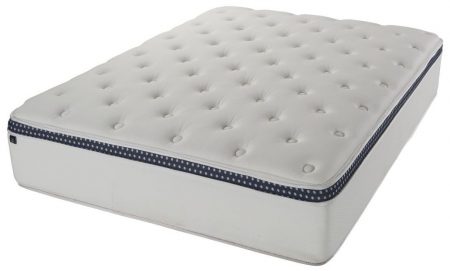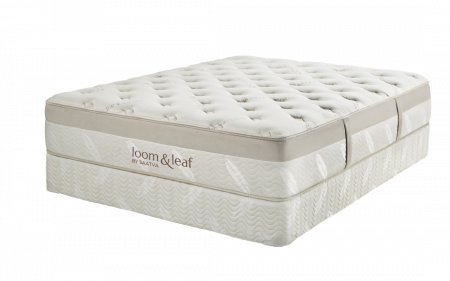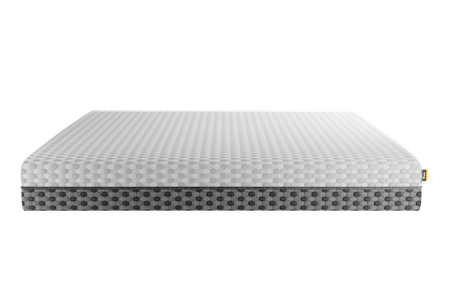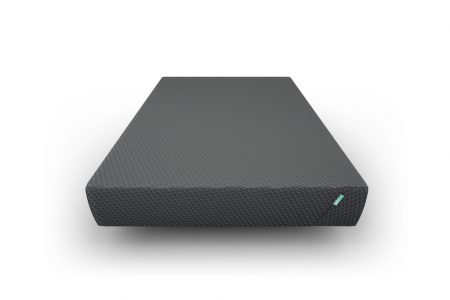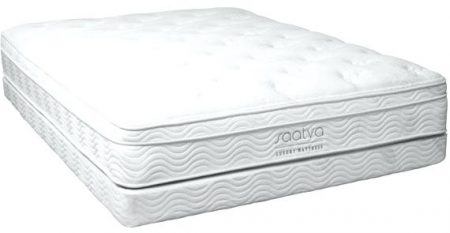How Does Arthritis Affect Sleep?
There is a strong link between chronic joint pain and non-restorative sleep. People who have a hard time falling or staying asleep due to aches and pains may experience fatigue, trouble focusing, and mood swings during the day. They generally require a mattress that provides a flat, even surface and close conforming to alleviate pain and pressure in their sensitive areas.
People with certain types of arthritis, such as infectious arthritis, may also experience symptoms that make it harder to fall asleep. These include sensitivity to temperature, motion transfer, and noise.
Mattress Considerations for People with Arthritis
When shopping for a new mattress and comparing different brands and models, people with arthritis should take the following factors into account:
Support
Mattress ‘support’ refers to how well the bed maintains a flat, level surface beneath the sleeper’s body. Ideally a mattress should be able to provide sufficient support for people of different weights and body types, but some models sag beneath heavier areas of the body. Excessive firmness or softness can make mattresses feel less supportive,
Conforming Ability
‘Conforming’ refers to the way some mattresses will mold to contours of a sleeper’s body. Closely conforming mattresses can help align the spine and alleviate pain and pressure in sensitive areas. However, some mattresses do not conform as closely to some areas as others, and this can lead to a lack of support and increased pain and pressure throughout the body.
Firmness
‘Firmness’ refers to how soft or firm the mattress feels to different sleepers. Some mattress models are available in multiple firmness options, while others are designed for one firmness only. The three general categories for mattress firmness are:
- Soft (1-3): Most sleepers sink deeply into the mattress. This is usually the most comfortable firmness option for people who weigh less than 130 pounds. People who weigh more than 130 pounds may experience excessive sinking, which can reduce mattress support and lead to more aches and pains.
- Medium (4-6): Some sleepers sink deeply into the mattress. This option provides sufficient support for most weight groups, but those who weigh more than 230 pounds may still sink too deeply and experience more pressure and pain.
- Firm (7-9): Few sleepers sink deeply into the mattress. This is typically the best option for people who weigh more than 230 pounds. Those who weigh less than 130 pounds may not weigh enough to experience any conforming, and this can lead to more pain and pressure.
Durability
The average mattress (regardless of construction type) will perform for at least six years, and some perform for up to eight or nine before they should be replaced. However, some mattresses are susceptible to sagging and indentations after a few years; this can increase pain and pressure for sleepers.
Motion Isolation
People with arthritis often experience chronic joint pain that makes them more sensitive to motion in bed. Some mattresses are designed to absorb and isolate motion to certain areas of the sleep surface. Other, more responsive mattress types offer little to no motion isolation.
Noise
In addition to motion, people with severe arthritis may be sensitive to noise when trying to fall asleep. Some mattresses produce little to no noise when bearing weight, but others feature coils, electrical components, and other parts that can creak, squeak, or rattle.
Temperature Neutrality
Some types of arthritis (namely infectious arthritis) can make people sensitive to heat or cold. Mattresses that are temperature-neutral will not sleep excessively warm or cool, and may be beneficial to individuals who tend to sleep hot or cold. Other mattresses are associated with sleeping hot and/or cold, and may not be the best option for people who are temperature-sensitive.
Ease of Movement
Chronic pain can cause people to roll over in their sleep and shift positions throughout the night. Mattresses that offer little resistance tend to be the most comfortable option, while those that cause deep sinking can make it harder to move in bed.
Sleep Trial
Most mattress brands and retailers offer ‘sleep trials’ for new mattresses that allow customers to test out their mattress for a pre-agreed length of time, anywhere from 30 to 365 consecutive nights (depending on the seller).
If the customer is not satisfied with the mattress before the sleep trial ends, he or she will be able to return or exchange their mattress for a full or partial refund.
Sleep trials can be quite advantageous for people with arthritis who are not sure which mattress brand/model is best for them.
Warranty Coverage
Excessive sagging or indentations in the sleep surface will qualify as a mattress defect under most manufacturer’s warranties. The vast majority of today’s mattress warranties include a specific measurement that is used to determine whether sagging or indentations represent a defect or standard wear and tear.
Sagging and indentations that measure more than an inch deep are associated with significantly more pain and pressure than those that measure one inch or less. For this reason, people with arthritis should review the mattress warranty to ensure they will be able to have their mattress repaired or replaced if sagging and indentations become deeper than one inch.
What Mattress Types Are Best/Worst for People with Arthritis?
Some mattress types are more suitable than others for sleepers with arthritis. The next table lists construction details, performance ratings, and more information about the five most common mattress types that may be relevant for individuals with arthritis.
